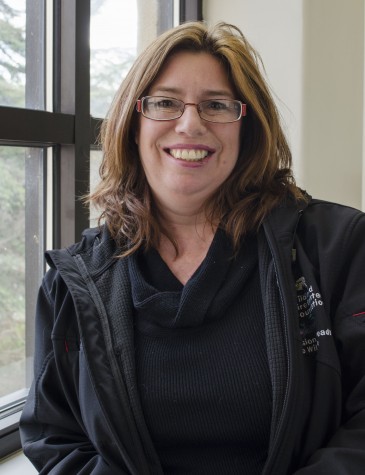Students Experience African Culture Through the Kenyan Celebratory Dance.
Students move to the beat of the drums as they learn about the communal nature of an African celebration dance, in honor of Black History Month, on Feb. 24 in Gymnasium 101.
Kara Bithell, FCC dance instructor, said Black History Month is the perfect time to invite guest instructor and FCC alumna, Tara Dixson, to expose the student population to the energy and social nature of African dance.
Bithell said she enjoys learning the techniques of the African dance and is very excited about engaging her performance students in a demonstration class in the future.
“I want students to simply be part of that form of dance,” Bithell said. “This dance is very energetic and it’s a workout.”
The students learned a celebratory dance from the Kenyan region of Africa. This celebration dance is used to commemorate births, naming ceremonies, marriages, deaths, crossovers, rain and sunshine. Dance carries historical and cultural roots in Africa.
“Everything is a celebration,” Dixson said. “Because not everything has true sadness, even when someone passes away, there is still something to celebrate. Their life.”
During the slavery period, African Americans were not allowed to participate in traditional marriage ceremonies. African American couples would often jump over a broomstick to establish their marriage, according to Dixson. This custom was adapted from an African wedding dance.
African dance is a free form of dance. Dixson says that as long as you are feeling the drum, it is right. You can pick your drum. You can go with a fast beat or a slow beat, as long as you are always in rhythm.
Drummers, called Papas, control movements of dancers and signal to them when to change a step or any movements. Dancers do not depend on counts but on their souls, depending on their feelings and staying in sync with your drum.
Dixson was first exposed to African dance at the age of 14 through Francine Oputa, director of the Cross Cultural and Gender Center at Fresno State University. She traveled with a group of African dancers called Rhythm Africa and danced with different Papas in Oakland.
She is passionate about sharing this dance form with others.
“I am going to start teaching classes at Lafayette Park. It is under the umbrella of constant movement so I am starting off with Zumba, but they want to build,” Dixson said. “So I am hoping to build and add African Dance as one of those classes.”
Dixson expressed her excitement about teaching FCC students the celebratory dance. She was happy that she did not have to persuade people to join in.
Annalisa Zamora, a dance conditioning student, loves the African dance experience.
“Oh my gosh, it is so amazing,” Zamora said. “I love it because it feels so communal especially at the end when we danced together.”
Jamillah Finley, a Fresno community member, enjoys the rhythm of the celebration dance.
“I love African dance because it feels so primal and natural to your body,” Finley said. “You don’t have to worry about what count you are on; it is just kind of free and natural.”

